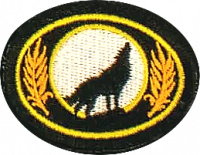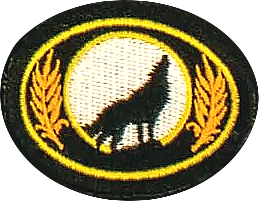Difference between revisions of "AY Honors/Palouse/Requirements"
(+ Reqs. for the Palouse AY Honor from UCC) |
m |
||
| (2 intermediate revisions by the same user not shown) | |||
| Line 3: | Line 3: | ||
<section begin=Body /> | <section begin=Body /> | ||
| − | <b>1. <section begin=req1 /><noinclude><translate></noinclude>On a map, trace the area that is typically considered a part of the Palouse. | + | <b>1. <section begin=req1 /><noinclude><translate><!--T:1--> |
| + | </noinclude>On a map, trace the area that is typically considered a part of the Palouse. | ||
<noinclude></translate></noinclude><section end=req1 /></b> | <noinclude></translate></noinclude><section end=req1 /></b> | ||
| − | <b>2. <section begin=req2 /><noinclude><translate></noinclude>Read, watch a video, or listen to a detailed history of the Palouse. Share the following with your group: | + | <b>2. <section begin=req2 /><noinclude><translate><!--T:2--> |
| + | </noinclude>Read, watch a video, or listen to a detailed history of the Palouse. Share the following with your group: | ||
<noinclude></translate></noinclude><section end=req2 /></b> | <noinclude></translate></noinclude><section end=req2 /></b> | ||
| − | :<b>a. <section begin=req2a /><noinclude><translate></noinclude>What the name Palouse means. | + | :<b>a. <section begin=req2a /><noinclude><translate><!--T:3--> |
| + | </noinclude>What the name Palouse means. | ||
<noinclude></translate></noinclude><section end=req2a /></b> | <noinclude></translate></noinclude><section end=req2a /></b> | ||
| − | :<b>b. <section begin=req2b /><noinclude><translate></noinclude>Significant natural and man-made landmarks. | + | :<b>b. <section begin=req2b /><noinclude><translate><!--T:4--> |
| + | </noinclude>Significant natural and man-made landmarks. | ||
<noinclude></translate></noinclude><section end=req2b /></b> | <noinclude></translate></noinclude><section end=req2b /></b> | ||
| − | :<b>c. <section begin= | + | :<b>c. <section begin=req2c /><noinclude><translate><!--T:5--> |
| + | </noinclude>How hills like the ones characteristic to the Palouse are formed. | ||
<noinclude></translate></noinclude><section end=req2c /></b> | <noinclude></translate></noinclude><section end=req2c /></b> | ||
| − | :<b>d. <section begin=req2d /><noinclude><translate></noinclude>Early explorers of the area. | + | :<b>d. <section begin=req2d /><noinclude><translate><!--T:6--> |
| + | </noinclude>Early explorers of the area. | ||
<noinclude></translate></noinclude><section end=req2d /></b> | <noinclude></translate></noinclude><section end=req2d /></b> | ||
| − | :<b>e. <section begin=req2e /><noinclude><translate></noinclude>Early Native American tribes who inhabited the Palouse. | + | :<b>e. <section begin=req2e /><noinclude><translate><!--T:7--> |
| + | </noinclude>Early Native American tribes who inhabited the Palouse. | ||
<noinclude></translate></noinclude><section end=req2e /></b> | <noinclude></translate></noinclude><section end=req2e /></b> | ||
| − | :<b>f. <section begin=req2f /><noinclude><translate></noinclude>Adventist history in the Palouse area. | + | :<b>f. <section begin=req2f /><noinclude><translate><!--T:8--> |
| + | </noinclude>Adventist history in the Palouse area. | ||
<noinclude></translate></noinclude><section end=req2f /></b> | <noinclude></translate></noinclude><section end=req2f /></b> | ||
| − | <b>3. <section begin=req3 /><noinclude><translate></noinclude>What type of habitat is the Palouse made of? Why is its conservation important? | + | <b>3. <section begin=req3 /><noinclude><translate><!--T:9--> |
| + | </noinclude>What type of habitat is the Palouse made of? Why is its conservation important? | ||
<noinclude></translate></noinclude><section end=req3 /></b> | <noinclude></translate></noinclude><section end=req3 /></b> | ||
| − | <b>4. <section begin=req4 /><noinclude><translate></noinclude>Most of the Palouse is used for agriculture. What are the most significant crops grown on the Palouse? | + | <b>4. <section begin=req4 /><noinclude><translate><!--T:10--> |
| + | </noinclude>Most of the Palouse is used for agriculture. What are the most significant crops grown on the Palouse? | ||
<noinclude></translate></noinclude><section end=req4 /></b> | <noinclude></translate></noinclude><section end=req4 /></b> | ||
| − | <b>5. <section begin=req5 /><noinclude><translate></noinclude>What causes the major changes of weather that the Palouse experiences? How does this affect the seasons? | + | <b>5. <section begin=req5 /><noinclude><translate><!--T:11--> |
| + | </noinclude>What causes the major changes of weather that the Palouse experiences? How does this affect the seasons? | ||
<noinclude></translate></noinclude><section end=req5 /></b> | <noinclude></translate></noinclude><section end=req5 /></b> | ||
| − | <b>6. <section begin=req6 /><noinclude><translate></noinclude>Name and identify the following animals native to the Palouse: | + | <b>6. <section begin=req6 /><noinclude><translate><!--T:12--> |
| + | </noinclude>Name and identify the following animals native to the Palouse: | ||
<noinclude></translate></noinclude><section end=req6 /></b> | <noinclude></translate></noinclude><section end=req6 /></b> | ||
| − | :<b>a. <section begin=req6a /><noinclude><translate></noinclude>Five species of mammals. | + | :<b>a. <section begin=req6a /><noinclude><translate><!--T:13--> |
| + | </noinclude>Five species of mammals. | ||
<noinclude></translate></noinclude><section end=req6a /></b> | <noinclude></translate></noinclude><section end=req6a /></b> | ||
| − | :<b>b. <section begin=req6b /><noinclude><translate></noinclude>Five species of birds. | + | :<b>b. <section begin=req6b /><noinclude><translate><!--T:14--> |
| + | </noinclude>Five species of birds. | ||
<noinclude></translate></noinclude><section end=req6b /></b> | <noinclude></translate></noinclude><section end=req6b /></b> | ||
| − | :<b>c. <section begin=req6c /><noinclude><translate></noinclude>Three species of amphibians. | + | :<b>c. <section begin=req6c /><noinclude><translate><!--T:15--> |
| + | </noinclude>Three species of amphibians. | ||
<noinclude></translate></noinclude><section end=req6c /></b> | <noinclude></translate></noinclude><section end=req6c /></b> | ||
| − | :<b>d. <section begin= | + | :<b>d. <section begin=req6d /><noinclude><translate><!--T:16--> |
| + | </noinclude>Three species of insects. | ||
<noinclude></translate></noinclude><section end=req6d /></b> | <noinclude></translate></noinclude><section end=req6d /></b> | ||
| − | :<b>e. <section begin= | + | :<b>e. <section begin=req6e /><noinclude><translate><!--T:17--> |
| + | </noinclude>Three species of reptiles. | ||
<noinclude></translate></noinclude><section end=req6e /></b> | <noinclude></translate></noinclude><section end=req6e /></b> | ||
| − | :<b>f. <section begin= | + | :<b>f. <section begin=req6f /><noinclude><translate><!--T:18--> |
| + | </noinclude>Five species of flowers. | ||
<noinclude></translate></noinclude><section end=req6f /></b> | <noinclude></translate></noinclude><section end=req6f /></b> | ||
| − | :<b>g. <section begin= | + | :<b>g. <section begin=req6g /><noinclude><translate><!--T:19--> |
| + | </noinclude>Three types of grass. | ||
<noinclude></translate></noinclude><section end=req6g /></b> | <noinclude></translate></noinclude><section end=req6g /></b> | ||
| − | <b>7. <section begin=req7 /><noinclude><translate></noinclude>What is the official state animal of Idaho and what is its connection with the Palouse? What Native American tribe was largely responsible for this animal's development? | + | <b>7. <section begin=req7 /><noinclude><translate><!--T:20--> |
| + | </noinclude>What is the official state animal of Idaho and what is its connection with the Palouse? What Native American tribe was largely responsible for this animal's development? | ||
<noinclude></translate></noinclude><section end=req7 /></b> | <noinclude></translate></noinclude><section end=req7 /></b> | ||
| − | <b>8. <section begin=req8 /><noinclude><translate></noinclude>What are some dangers you might encounter when visiting the Palouse? How can you stay safe during your visit? | + | <b>8. <section begin=req8 /><noinclude><translate><!--T:21--> |
| + | </noinclude>What are some dangers you might encounter when visiting the Palouse? How can you stay safe during your visit? | ||
<noinclude></translate></noinclude><section end=req8 /></b> | <noinclude></translate></noinclude><section end=req8 /></b> | ||
<section begin=challenge /> | <section begin=challenge /> | ||
| − | <b>9. <section begin=req9 /><noinclude><translate></noinclude>Do two of the following: | + | <b>9. <section begin=req9 /><noinclude><translate><!--T:22--> |
| + | </noinclude>Do two of the following: | ||
<noinclude></translate></noinclude><section end=req9 /></b> | <noinclude></translate></noinclude><section end=req9 /></b> | ||
| − | :<b>a. <section begin=req9a /><noinclude><translate></noinclude>Draw a picture or create a craft of something you enjoyed learning about while you earned this honor. | + | :<b>a. <section begin=req9a /><noinclude><translate><!--T:23--> |
| + | </noinclude>Draw a picture or create a craft of something you enjoyed learning about while you earned this honor. | ||
<noinclude></translate></noinclude><section end=req9a /></b> | <noinclude></translate></noinclude><section end=req9a /></b> | ||
| − | :<b>b. <section begin=req9b /><noinclude><translate></noinclude>Create or play a game using what you've learned about the Palouse, including its agriculture, animals, or history. | + | :<b>b. <section begin=req9b /><noinclude><translate><!--T:24--> |
| + | </noinclude>Create or play a game using what you've learned about the Palouse, including its agriculture, animals, or history. | ||
<noinclude></translate></noinclude><section end=req9b /></b> | <noinclude></translate></noinclude><section end=req9b /></b> | ||
| − | :<b>c. <section begin=req9c /><noinclude><translate></noinclude>Participate in a conservation project that benefits the Palouse or other prairie habitats. | + | :<b>c. <section begin=req9c /><noinclude><translate><!--T:25--> |
| + | </noinclude>Participate in a conservation project that benefits the Palouse or other prairie habitats. | ||
<noinclude></translate></noinclude><section end=req9c /></b> | <noinclude></translate></noinclude><section end=req9c /></b> | ||
| − | :<b>d. <section begin=req9d /><noinclude><translate></noinclude>Visit a zoo or nature preserve that displays plants or animals that are native to the Palouse. | + | :<b>d. <section begin=req9d /><noinclude><translate><!--T:26--> |
| + | </noinclude>Visit a zoo or nature preserve that displays plants or animals that are native to the Palouse. | ||
<noinclude></translate></noinclude><section end=req9d /></b> | <noinclude></translate></noinclude><section end=req9d /></b> | ||
| − | :<b>e. <section begin=req9e /><noinclude><translate></noinclude>Write a minimum of 300 words about what you enjoyed learning about most in this honor. | + | :<b>e. <section begin=req9e /><noinclude><translate><!--T:27--> |
| + | </noinclude>Write a minimum of 300 words about what you enjoyed learning about most in this honor. | ||
<noinclude></translate></noinclude><section end=req9e /></b> | <noinclude></translate></noinclude><section end=req9e /></b> | ||
<section end=challenge /> | <section end=challenge /> | ||
| − | <b>10. <section begin=req10 /><noinclude><translate></noinclude>What spiritual applications can you find in waht you've learned about while studying the Palouse? Share it as a brief devotional with your group. | + | <b>10. <section begin=req10 /><noinclude><translate><!--T:28--> |
| + | </noinclude>What spiritual applications can you find in waht you've learned about while studying the Palouse? Share it as a brief devotional with your group. | ||
<noinclude></translate></noinclude><section end=req10 /></b> | <noinclude></translate></noinclude><section end=req10 /></b> | ||
<section end=Body /> | <section end=Body /> | ||
Latest revision as of 18:44, 14 October 2024
Skill Level
Unknown
Year
Unknown
Version
26.02.2026
Approval authority
Upper Columbia Conference
1. On a map, trace the area that is typically considered a part of the Palouse.
2. Read, watch a video, or listen to a detailed history of the Palouse. Share the following with your group:
- a. What the name Palouse means.
- b. Significant natural and man-made landmarks.
- c. How hills like the ones characteristic to the Palouse are formed.
- d. Early explorers of the area.
- e. Early Native American tribes who inhabited the Palouse.
- f. Adventist history in the Palouse area.
3. What type of habitat is the Palouse made of? Why is its conservation important?
4. Most of the Palouse is used for agriculture. What are the most significant crops grown on the Palouse?
5. What causes the major changes of weather that the Palouse experiences? How does this affect the seasons?
6. Name and identify the following animals native to the Palouse:
- a. Five species of mammals.
- b. Five species of birds.
- c. Three species of amphibians.
- d. Three species of insects.
- e. Three species of reptiles.
- f. Five species of flowers.
- g. Three types of grass.
7. What is the official state animal of Idaho and what is its connection with the Palouse? What Native American tribe was largely responsible for this animal's development?
8. What are some dangers you might encounter when visiting the Palouse? How can you stay safe during your visit?
9. Do two of the following:
- a. Draw a picture or create a craft of something you enjoyed learning about while you earned this honor.
- b. Create or play a game using what you've learned about the Palouse, including its agriculture, animals, or history.
- c. Participate in a conservation project that benefits the Palouse or other prairie habitats.
- d. Visit a zoo or nature preserve that displays plants or animals that are native to the Palouse.
- e. Write a minimum of 300 words about what you enjoyed learning about most in this honor.
10. What spiritual applications can you find in waht you've learned about while studying the Palouse? Share it as a brief devotional with your group.



